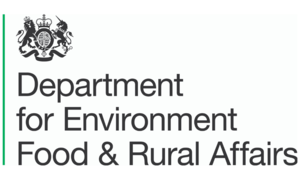Environment Agency figures released today show a huge surge in fishing licence sales after the government lifted restrictions on outdoor activities.
Between 13 May 2020, when the restrictions were lifted, and 9 June 2020 over 335,000 licences were sold compared to 142,000 licences sold from the start of the year to end of March 2020, a rise of over 230% in less than two months. This also represents a rise of over 200,000 more than the same period last year.
The Environment Agency and the sport’s governing body, the Angling Trust, believe the rise is due to existing anglers embracing the opportunity to start fishing again, together with those taking up the sport for the first time or returning to the sport after a long absence – prompted by the pursuit of new hobbies during lockdown.
Fishing licence income is vital to the work of the Environment Agency to maintain, improve and develop fisheries. Revenue generated from fishing licence sales is reinvested to benefit angling, with work including tackling illegal fishing, protecting habitats for fish and improving facilities for anglers.
Last year alone, the revenue generated by over 800,000 anglers contributed to the cost of building more than 100 fish passes, allowing the free movement of fish through rivers. Other work covered by the licence fee included nearly 2,000 fish surveys and improvements to over 1,000 kilometres of river and 87 hectares of stillwater fisheries.
The rise in interest in fishing comes at a prime time for anglers with the end of the close season for coarse fishing on rivers just around the corner. The annual close season, which runs from the 15 March until 15 June helps to protect coarse fish stocks across England during spawning.
Dr Graeme Storey, Environment Agency Acting Deputy Director for Fisheries and the Natural Environment, said:
Since the lifting of restrictions on recreational angling it has been encouraging to see not only anglers returning to the sport, but also people trying fishing for the first time. Responsible fishing is an excellent way to engage with nature and enjoy being outdoors, which in turn can provide positive health and welfare benefits. As a consequence of the revenue generated through the sale of rod licences, anglers are at the heart of protecting and improving the very things they care about.
Fishing really is an activity that most people, of any age, can participate in and enjoy. Whether looking for a moment of solitude or a family day out, I would encourage anyone thinking about it to give it a go. It is important to remember that if you decide to return to fishing or take it up for the first time, you must have a valid fishing licence and adhere to current government guidelines on social distancing.
Jamie Cook, Angling Trust CEO, said
The Angling Trust is delighted that ministers embraced the recommendations in our When We Fish Again report and authorised an early resumption of angling in England to COVID compliant guidelines. We are also delighted to be witnessing something of a renaissance in angling with former anglers returning to the sport and newcomers trying fishing for the first time. In these difficult times we believe that our sport has much to offer in terms social, health and economic wellbeing.
In England and Wales you need a fishing licence to fish for salmon, trout, freshwater fish, smelt or eel with a rod and line. Anglers found fishing without a licence can face fines of up to £2,500.
It is imperative to anglers follow the Government guidance in place, limiting contact with other people and maintain a distance of 2m from other anglers whilst fishing. If you are in Scotland, Wales or Northern Ireland, you must adhere to the guidance and regulations set by the Scottish and Welsh governments or Northern Ireland Executive at all times.

